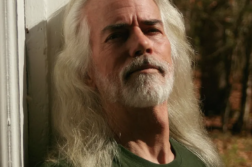WAYNE KOESTENBAUM is the author of five books of poetry, one novel, and six books of nonfiction. As a cultural critic, he often writes from the perspective of a gay man. Koestenbaum’s subjects include opera, avant-garde artists and writers, and musical and theatrical stars. His best-known critical study, The Queen’s Throat: Opera, Homosexuality, and the Mystery of Desire (1993), examines the affinity of gay men for opera. His most recent book, Humiliation (2011), is part of the Picador Big Ideas//Small Books series. Koestenbaum is a graduate of Harvard College and Princeton University. He is a distinguished professor of English at the CUNY Graduate Center and a visiting professor in the painting department of the Yale School of Art.
This interview was conducted over the telephone late last August.






